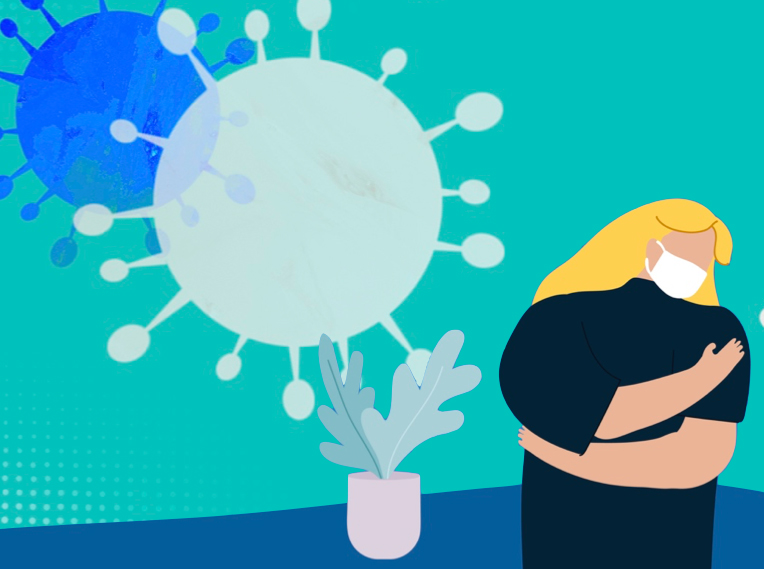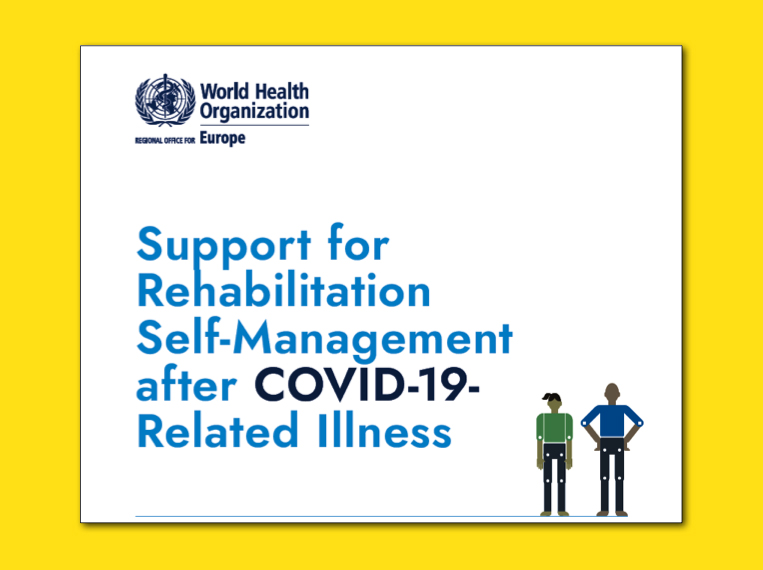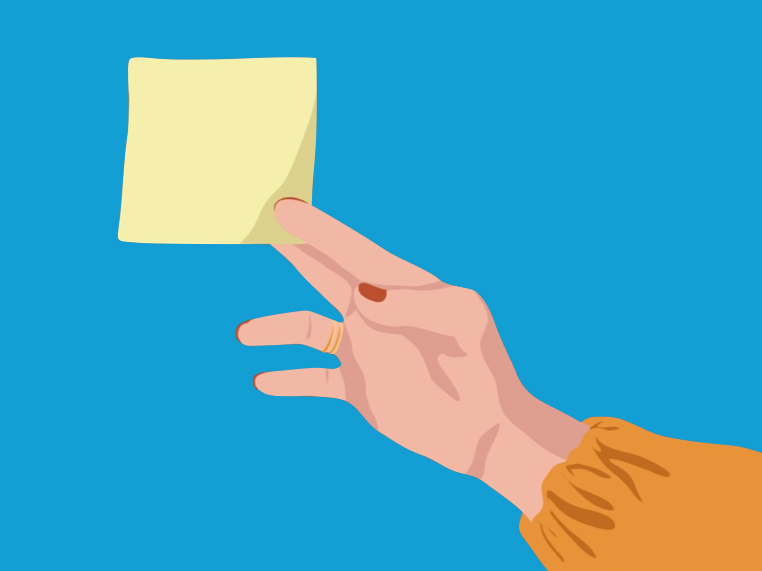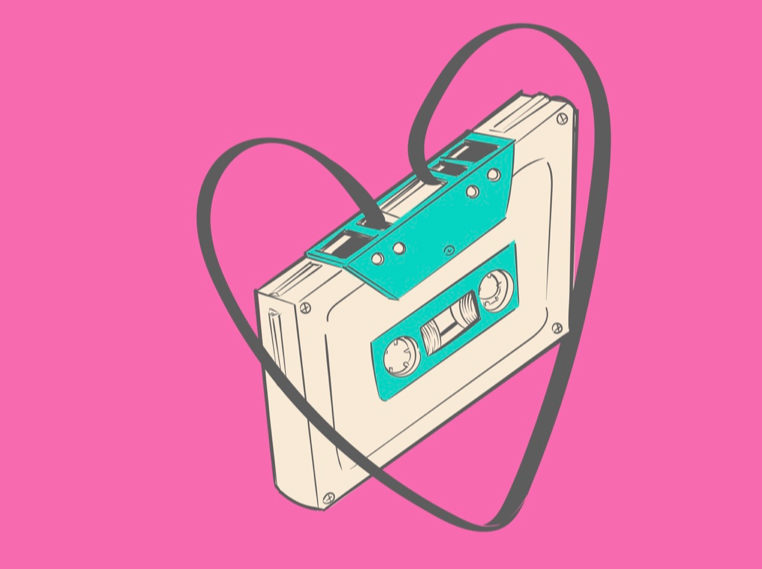
Many people are falling ill with COVID.
When you test positive for COVID, you are told to stay at home, isolate, and rest for a period of time (in Western Australia it’s a minimum of 7 days of isolation or until you are symptom free).
But is there anything you can do to optimise your recovery?
The good news is there is a lot you can do.
The World Health Organization (WHO) has developed a brilliant resource called Support for Rehabilitation Self-Management after COVID-19-Related Illness.

The WHO produced the leaflet for adults who have been severely unwell and admitted to hospital with COVID. But personally, I think this resource contains a lot of good practical advice for anyone who gets COVID.
Below I share a few ideas and strategies from this resource.
1. Lower your expectations
When you have COVID, everything feels harder to do. For this reason, you can’t expect to keep working at the same intensity that you usually would. The WHO recommends setting the bar low. It states:
“Adjust your expectations for what you can do in a day. Set realistic goals based on how you are feeling. When you are very tired, breathless, or weak, even getting out of bed, washing, and dressing can be achievements.”
2. Look for ways to conserve your energy
Are there any tools, services, or people that can make your life a little easier? You’re going to feel low in energy (remember, your body is busy fighting a virus!), so you need to conserve the remaining energy you have.
The WHO recommends:
• Doing tasks sitting down when you can
• Avoiding tasks that require you to stand, bend down, reach high, or squat for long periods
• Factoring in time to rest during the day
• Getting people to bring you healthy meals and/or help with shopping
• Doing light tasks between heavier ones
If you haven’t got COVID yet, think about what you can do now (while you are healthy and well) to make life easier for your future self. It’s best to do whatever you can to minimise the risk of catching COVID in first place.
Keep wearing a mask. This is simple, easy, and effective. Even if you don’t have to weak a mask and no one else is wearing one, studies show wearing a mask makes a big difference in protecting you from the virus.
But let’s say you still end up catching COVID. What would make life easier for a sick version of you? Perhaps a few healthy homemade meals in the freezer would do the trick. Or having a stash of items that make you feel good and lift your spirits (e.g., nice music, healthy snacks, and good books).
3. Give your brain a break

COVID can mess with your memory, attention, and ability to think clearly. Instead of feeling frustrated with yourself (“What’s wrong with my brain?”), there are simple things you can do to take the pressure off and ease the mental load. The WHO suggests the following practical strategies:
• Engage in gentle physical activity (more on this below).
• Challenge your brain (e.g., read, start a new hobby, or do a puzzle)
• Set up prompts to remind you to do certain activities (e.g., write a list and notes to yourself)
• Break down activities into baby steps
4. Stay connected
We are social creatures. We are wired for connection. During your COVID recovery, it’s important to reach out to friends and family members. The WHO states:
“Talking with others can help to reduce the stress and may also help you in finding solutions for challenges in your recovery journey.”
Chatting can be an uplifting activity, but it also takes energy to do. If you find yourself feeling a bit tired and out of breath, let the person you’re talking with know that you need to wrap things up or take a little break.
Remember, your top priority is to conserve your energy and rest so you recover well.
5. Engage in gentle exercises
The WHO stresses that exercise is an important part of your COVID recovery. Engaging in physical activity is going to help you rebuild your strength, boost your brainpower and improve your mood and energy levels.
But one thing is clear . . .
If you feel sick, dizzy, and/or light headed, you shouldn’t be exercising.
In this article, senior lecturer Clarice Tang recommends returning to exercise only if you have not experienced any COVID-related symptoms for at least seven days.
When you do feel ready to get back into exercising, don’t overexert yourself. Ease into it by creating some tiny exercise habits. The WHO recommends a number of simple exercises you can do, such as bicep curls, squats against a wall, and step-ups.
6. Boost your fruit and vegetable consumption

The WHO states “Eating well and drinking water/juice are important to your recovery” and “Eating sufficiently and healthily is important to your overall wellbeing”.
For these reasons, resist the urge to order fish and chips or a pizza from Uber Eats. If you have the energy, prepare a simple healthy meal. Every meal you eat that is packed full of nutrients is likely to take you one step further to making a full recovery.
Research suggests certain nutrients (particularly vitamin C and D and Zinc), which you get through consuming plant and whole foods, can improve your immune function.
7. Get good quality sleep
The WHO recommends sticking to a regular sleeping and waking up time. If you’re not sure what an optimal sleep and wake time is, use an online sleep calculator to work this out.
The WHO also acknowledges that stress can negatively impact on your ability to get restorative sleep. For this reason, it suggests adding some simple relaxation activities before bed time.
8. Decrease stress

Having COVID can be stressful. It can bring up a lot of fear and anxiety (“Will I get better? What if I get long COVID?”). The WHO suggests engaging in “relaxing activities that do not make you too tired”. Why not try listening to music or a podcast, reading, or doing a guided meditation?
To sum up
There’s a lot you can do to optimise your COVID recovery. If you follow the WHO’s recovery recommendations and you’re still not feeling 100% come day 8 (when isolation ends), don’t panic. Dr Norman Swann states on the recent Coronacast episode that Omicron tends to knock you about for 3-4 weeks.
So, go easy on yourself. Be patient. Healing from COVID takes time.
